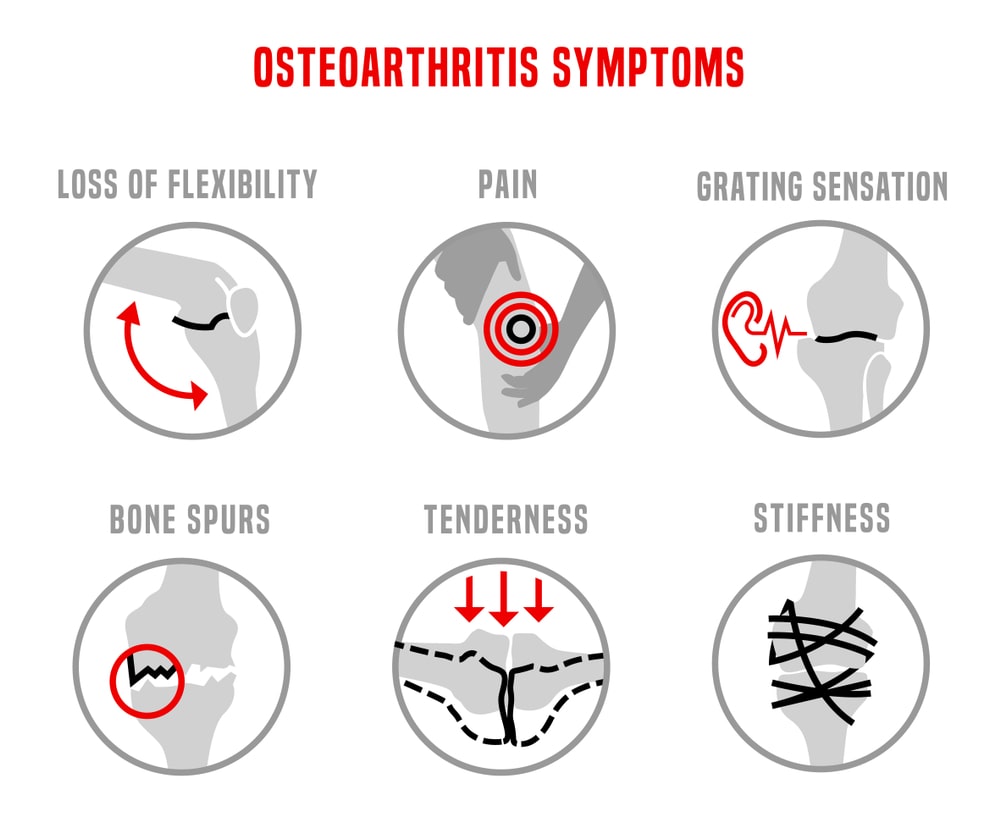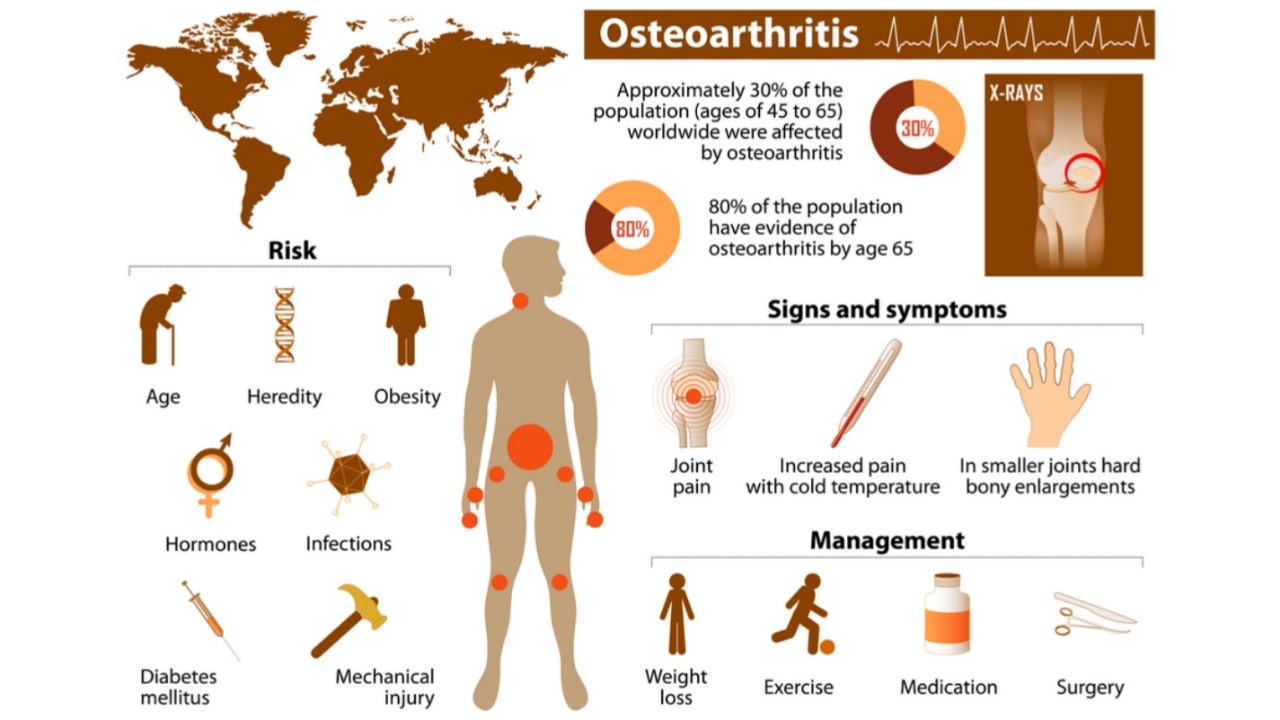Nutraceuticals For Osteoarthritis: Osteoarthritis (OA) is one of the most prevalent and disabling chronic diseases affecting older people. A high prevalence of OA among older people and women and the moderate to severe impact on daily life pose a significant public health problem. OA involves the erosion of articular cartilage, inflammation of the synovial membrane, and resorption of the underlying subchondral bone. These pathological changes are associated with excessive production of pro-inflammatory molecules such as interleukin 13 (IL-13) and tumor necrosis factor-a (TNFa), which shift the balance between the synthesis and degradation of matrix components resulting in progressive destruction of the joint tissue. Today, a cure for OA remains elusive. Non-pharmacological management includes physical therapy, aerobic exercises, muscle strengthening, weight reduction, walking aids, knee braces, footwear and insoles, electromagnets, thermal modalities, and acupuncture. For OA treatment and prevention, glucosamine and chondroitin sulfate, two of the molecular building blocks found in articular cartilage, are the most commonly used dietary supplements. In randomized trials of variable quality, these compounds show efficacy in reducing symptoms, but neither has been shown to arrest the progression of the disease or regenerate damaged cartilage.
Pharmacological management of OA has targeted symptoms of the disease rather than the underlying cause; analgesics and non-steroidal anti-inflammatory drugs (NSAIDs) represent the mainstay of treatment. These drugs generally decrease pain and stiffness and improve function Although, any beneficial effects to the underlying cartilage and bone associated with the use of these drugs have not been demonstrated, they remain among the most widely prescribed drugs for OA therapy. Other treatment options are selective cyclooxygenase 2 (COX-2) inhibitors (rofecoxib) for pain management but these drugs are reported to be associated with gastrointestinal and cardiovascular, adverse events. Matrix metalloproteinase (MMP) inhibitors have been studied for the prevention of cartilage degradation but their clinical use has been limited by severe side effects. Intra-articular therapies like glucocorticoid and hyaluronan injections have been used for pain relief but recent observations suggest that they may accelerate cartilage breakdown. Long-term use of available pharmacological agents to relieve OA symptoms is associated with serious adverse events and highlights the importance of developing safer alternative and prevention strategies. Such prevention and alternative/adjunct therapies could come from nutraceuticals.
OA as a chronic disease is a perfect paradigm of the pathology of treatment, which could be addressed by nutraceuticals and dietary supplements.
First, nutraceuticals only have limited effects on their biological target and significant differences can be reached over time through a buildup effect in which daily benefits add up and the time window for intervention is longer in chronic diseases.
Second, nutraceuticals could provide a safer alternative because generally, their use is devoid of adverse effects, although this is not universal. Public interest in the benefits provided by nutraceuticals such as medicinal herbs for OA is high and 47% of older adults use non-prescribed alternative medications (dietary supplements) for OA management.

The scientific evidence supporting the efficacy of Punica granatum (pomegranate fruit), Camellia sinensis (green tea), Uncaria atomentosa (Uncaria guianensis (cat’s claw), Harpagophytum procumbens (devil’s claw), Zingiber officinale (ginger), Boswellia serrata, Curcuma longa (turmeric) and Ananas comosus in an attempt to understand the pivotal molecular targets involved in inflammation and the joint destruction process and effective for the treatment and management of OA.
Make sure you also check our other amazing Article on : Nutraceutical For Stress
